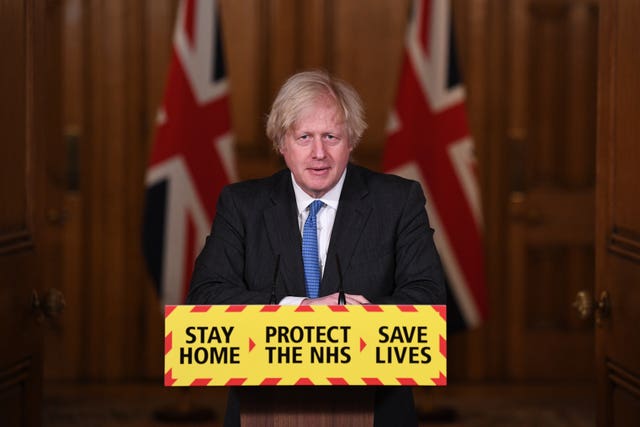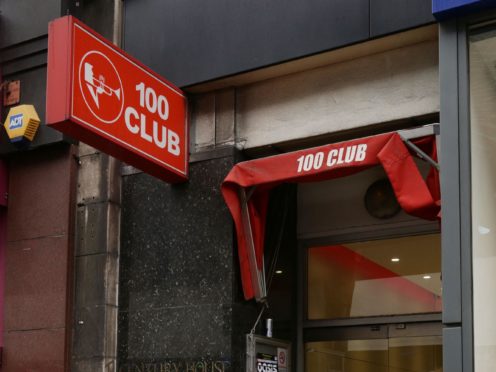Rapid testing outside music venues is not the answer to reviving the live concert industry, but using Government testing centres could be way forward, the head of the Music Venue Trust has said.
Mark Davyd, the CEO of the organisation – which works to protect, secure and improve music venues, said the most viable move is to use the Government testing centres already in operation.
The Prime Minister has said rapid Covid-19 testing could help entertainment venues, such as theatres and nightclubs, start to welcome back customers once lockdown restrictions are eased.
However, Mr Davyd said it is unlikely venues themselves would be able to test patrons on the spot in a safe and efficient manner.

He told the PA news agency: “If we could use those to get people rapid tested, to get acknowledgement of a negative test onto their phones or a digital device, which they could show at the door, then it’s very practical to imagine that that could be a very significant contributor towards risk management.
“If we are imagining that every venue would carry out its own rapid test, that quickly moves into the realms of not making a lot of financial sense and also being a nightmare to administer and frankly being quite risky in terms of how efficient the testing would be.
“If we can rely on the rapid testing centres, then I think it’s definitely a contributor towards getting events back.”
Mr Davyd said if venues were left to test customers themselves, there would be hundreds of people milling around waiting for their results before they were allowed inside, adding: “That is not very practical.”
He continued: “I’m not sure any music venue or any nightclub or anything is going to be able to train up staff to efficiently carry out rapid testing at this speed, I think that is something we want to see professional services delivering.
“So I would very much lean on the rapid testing centres, if they keep those open, which I understand is the plan, you could have a rapid test on the Thursday and justifiably go to a gig on the Friday, you could have one on Friday and go to gigs on Friday and Saturday, the capacity is there for that to happen and I think that is the best way forward.”
MUSIC VENUE TRUST ANNOUNCE ‘TRAFFIC LIGHT’ CAMPAIGN TO SAVE ALL GRASSROOT MUSIC VENUES STILL IN CRISIS
30 Venues Become ‘Red Light’ Focus of #saveourvenues Campaign#savethe30https://t.co/Y6OR17YvfD
LIKE / SHARE / DONATE pic.twitter.com/3fOy2U7nb9
— Music Venue Trust (@musicvenuetrust) November 11, 2020
The Music Venue Trust has already proposed two pilot schemes, one in London at 100 Club and another one at the Exchange in Bristol, to test events featuring rapid testing.
Mr Davyd said: “The question we have asked this morning is could people present a vaccination certificate?
“We are not trying to make things mandatory, we are just saying if you imagine a 200 capacity room and maybe 50% of the audience has been vaccinated and 40% of the audience has been rapid tested and the remaining 10% couldn’t be vaccinated or have a test, 10% of the audience is a radically different risk management process than 200 people we don’t know anything about.”
Peter Marks, chief executive of late night bar and club operator REKOM UK, also questioned the viability of venues carrying out tests.
REKOM UK, formerly known as the Deltic Group, which was saved from administration by Danish backers, runs 42 venues, with brands including PRYZM, Cameo and Vinyl.
Mr Marks said a testing regime could be considered if it helped businesses open two or three months earlier and was not “discriminatory” against nightclubs.
But he added: “The problem with testing, the lateral flow testing or other types of testing such as LAMP testing, is that to be effective it’s got to be fast and it’s got to be cheap, and of course it’s got to be accurate enough.
“And so with that in mind, I can’t see at the moment that that exists.”
He said the UK’s vaccination programme could “overtake” the need for testing and suggested the idea of customers standing outside venues waiting for results was “laughable”.
Mr Marks said if testing requirements were not imposed on pubs, then people were “not going to be bothered” with a nightclub test and would not want to be “walking into a club that’s three-quarters empty”.
He added: “Government needs to stop treating us as if we are the pariahs of hospitality and understand that actually we are no different at all to late-night bars or to… theatres or others.”
He said businesses should only come back “when it is right” and the Government should provide his sector with financial support in the meantime.
